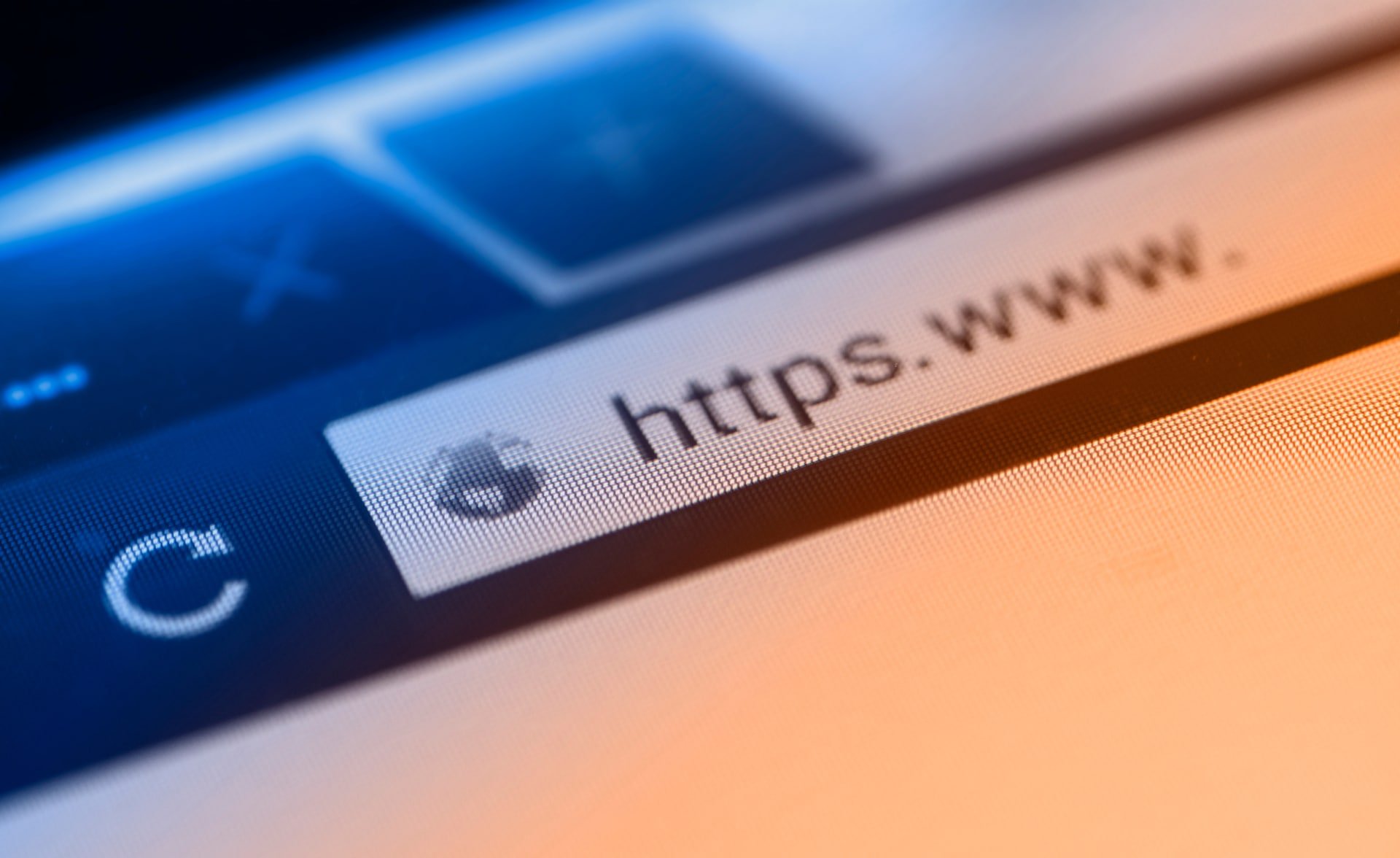Your Customers Demand Online Security
Privacy and security are persistent concerns for internet users that have continued to increase in recent years. A 2016 Pew Research Center survey demonstrates that most people have experienced a data breach, and many don’t trust companies or governments to protect their data.
- 64% of people reported an incident of data theft.
- 49% feel that their data is less secure than it was in 2010.
- 36% don’t think that companies they do business with properly protect their sensitive information.
- 28% have zero confidence in the government’s ability to protect their data.
Across demographic groups, the majority of people (69%) reported that they had opted against opening a digital account due to privacy concerns.
Therefore, it’s no surprise that more than half of all website browsing is now done on secure (HTTPS) sites, and the volume of secure website traffic is rising consistently. In fact, the majority of the world’s most visited websites use HTTPS protocols.
At LaFleur, we recognize that your audience expects privacy and safety while browsing your website. We also know that search engines like Google are encouraging increased security online. We provide all of our clients with an authenticated SSL certificate on their website — and we believe you should have one too.
What Is SSL?
SSL stands for “Secure Sockets Layer” and is a type of security protocol that encrypts data being sent between a server (like the one hosting your website) and a user. You may have also heard of TLS, which stands for “Transport Layer Security.” It’s a newer, more secure protocol. Although there seem to be more acronyms associated with online security every day, most people simply refer to the latest in website security as “SSL” because the term has been around since the 1990s, becoming fairly familiar to most regular internet users during that time.
To take advantage of these security protocols, you need an SSL certificate, which is a file housed in your website’s root directory. This file authenticates your identity and provides a unique key that is used for encrypting and decrypting transmitted information. Your certificate comes from a trusted outside party that verifies your identity to validate the certificate.
Right, But What Is SSL?
It’s easy to get lost in the nuts and bolts of protocols, certificates, and cryptographic keys. Luckily, there’s a very simple way to explain SSL: if a site has an SSL certificate, most major browsers will indicate that it is secure by showing a padlock icon.
Similarly, secure sites will have “HTTPS” in front of their URL instead of “HTTP.” However, a site that begins with HTTPS can still be insecure if its certificate is not authenticated or if it’s using older versions of the protocols. Usually, browsers will indicate this with a different icon, such as a red “X” over a padlock or an exclamation point:
Starting in July 2018, Google Chrome began flagging websites that lack a valid SSL certificate, and many other reputable search engines quickly adopted the practice. Websites without a valid SSL certificate often have the phrase “Not Secure” before the URL. Browsers may also provide more information about the security of a site if you click on one of those icons or a different “information” icon:
Here’s Why You Need an SSL Certificate for Your Website
Because it’s obvious to users whether your site is secure or not, having an SSL certificate has become the expectation rather than a distinguishing factor for your brand. In fact, if your site is not visibly secure, you’re already at a distinct disadvantage. People want to know their information is secure and private, and a simple way to show people that you share their concerns is by securing your site with an SSL certificate.
Of course, SSL certificates also perform their primary function by providing an important layer of security to your site:
- They protect usernames and passwords.
- They encrypt sensitive information that users submit on forms — such as their name, email, phone number, and details about why they are contacting you.
- They protect credit card data.
In addition, securing your website has several hidden benefits that are not talked about as much. Below, we’ll discuss some of the major reasons to utilize a higher degree of online security.
HTTPS Sites Get an SEO Boost
Back in 2014, Google announced that HTTPS is a ranking factor for website placements on search engine results pages (SERPs). While it currently appears to function more like a tiebreaker in most search results, Google has indicated that “over time, we may decide to strengthen it because we’d like to encourage all website owners to switch from HTTP to HTTPS to keep everyone safe on the web.”
This is in line with other Google policies in the past that follow user trends, such as incorporating mobile responsiveness as a ranking factor in their algorithm. Since more than half of all users are now actively browsing secure sites and clearly indicating their desire for increased privacy and security online, Google may make a stronger push to reward sites that are secure — much like they did around the time that mobile traffic surpassed desktop traffic.
RELATED: Podcast Episode 26 – Keeping Your Clients’ Data Secure, With Scott Dresen
You Can Advertise Your SSL Certificate
Even though people are browsing secure sites, that doesn’t necessarily mean they understand what that means. Having an SSL certificate gives you additional leverage on important pages. In particular, dedicated landing pages will benefit from an added, explicit trust symbol.
For example, if you offer a free eBook in exchange for someone’s name and contact information, you should add a security symbol to increase conversions. Or, if you have a contact page that asks people for personal details, you should make it clear that their submission is secure and private, which SSL certificates make blatantly obvious.
You Protect Your Brand Using HTTPS
No matter how big or small your business, you could be a target for scammers, identity thieves, and other criminals. In fact, many smaller sites are ideal targets simply because they often don’t have the time, budget, or inclination to keep their website up to date or implement an SSL certificate.
RELATED: Building Trusting Partnerships With New and Existing Clients
When you have an SSL certificate, your site visitors will know they are on the right site and engaging with you — not a scammer or imposter.
LaFleur Helps Build Implicit Trust with Secure Websites for All Our Clients
Beyond actual security, the commercial benefit of having an HTTPS site is that it instills trust. Having outdated or insufficient security on your site will draw people’s attention and raise their evolving technological alarms — thanks in part to browsers making it glaringly obvious when you are visiting an insecure site and users’ increasing privacy concerns.
Here at LaFleur, each website build, migration, and maintenance plan services include upgrading websites with an SSL certificate. Every site should be secure, and we know you are missing out on opportunities if you have not made the switch to HTTPS.
To speak with one of our experts about upgrading your site to be more secure, please call (888) 222-1512 or fill out our convenient — and secure — online contact form.
References
Foltyn, T. (2018, September 3). Majority of the world’s top million websites now use HTTPS. WeLiveSecurity. Retrieved from https://www.welivesecurity.com/2018/09/03/majority-worlds-top-websites-https/
Https as a ranking signal. (2014, August 6). Google Security Blog. Retrieved from https://security.googleblog.com/2014/08/HTTPS-as-ranking-signal_6.html
Percentage of web pages loaded by Firefox using https. (2017, September 25). Let’s Encrypt. Retrieved from https://letsencrypt.org/stats/
Smith, A. (2017, January 26). Americans and cybersecurity. Pew Research Center. Retrieved from https://www.pewinternet.org/2017/01/26/americans-and-cybersecurity/







